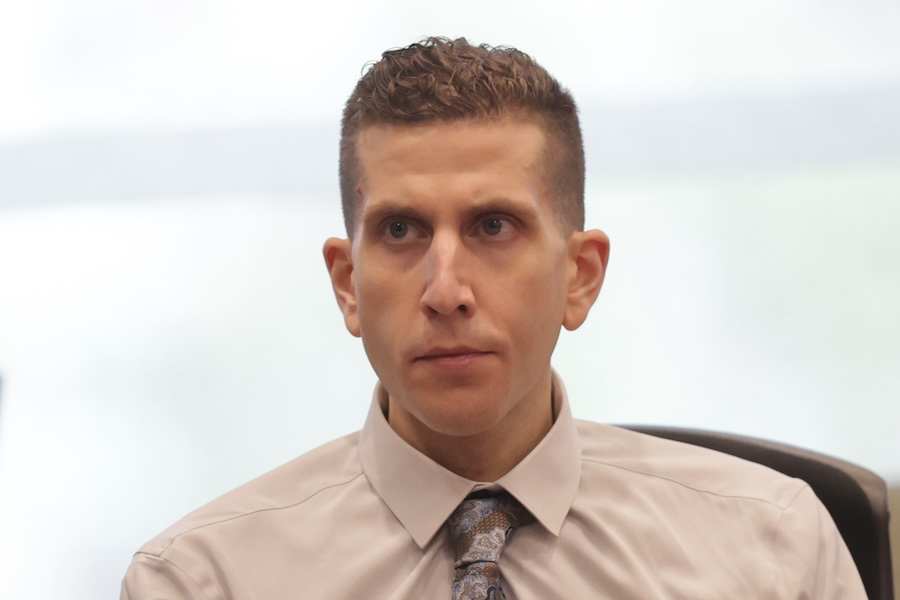The revelation that Bryan Kohberger pleaded guilty to the murders has sent shockwaves through the community, especially among those who knew him personally. This extensive Q&A post aims to explore the multifaceted reactions from his former friends, peers, and acquaintances, providing insight into the complex emotions and perspectives surrounding the case.

Bryan Kohberger: Murder victim’s family reacts to guilty plea
1. Who is Bryan Kohberger?
Bryan Kohberger is a man who recently pleaded guilty to multiple counts of murder, a case that has garnered significant media attention. Before the crime, he was known as a quiet individual, often described by friends and peers as reserved but intelligent. His background includes academic achievements and involvement in various social circles.
2. How did Bryan’s former friends react to the guilty plea?
Q: What was the immediate reaction among Bryan’s friends upon hearing the news?
A: Many of Bryan’s former friends expressed shock and disbelief. Several mentioned that they had never suspected he was capable of such violence. Comments like “He was always so calm and composed” and “This is completely out of character” were common.
Q: Did any friends defend him or express doubt about his guilt?
A: While most accepted the guilty plea as an admission of guilt, a small number maintained that they wished to see the full evidence before passing judgment. Some expressed sympathy, suggesting that he might have been under extreme pressure or suffering from mental health issues.
3. What perspectives did Bryan’s peers from academic and social circles share?
Q: How did Bryan’s academic peers react?
A: Academic peers described Bryan as highly intelligent and focused, often engrossed in his studies. They expressed a mixture of sadness and confusion, noting that while he was competitive, he rarely showed signs of aggression or hostility.
Q: Were there any noticeable changes in his behavior reported before the incident?
A: Some peers mentioned that Bryan had become more withdrawn and less communicative in the months leading up to the crime. Others noted that he appeared stressed but did not elaborate on any specific issues.
4. Did Bryan’s former friends and peers have any insight into his personal life?
Q: What do former friends reveal about Bryan’s relationships and personality?
A: Friends described Bryan as introverted, often preferring solitude or small groups rather than large social gatherings. He was seen as polite but not overly expressive emotionally. Some noted that he had a tight-knit group of close friends but was not very open about his personal struggles.
Q: Were there any red flags or warning signs noticed by those close to him?
A: Most friends stated that they did not notice any obvious warning signs. However, a few admitted that Bryan sometimes exhibited mood swings or seemed unusually tense, which they attributed to academic pressure.
5. How did Bryan’s former friends and peers react to the legal proceedings?
Q: What did they think about the investigation and trial?
A: Many followed the case with great interest and concern. Some expressed frustration over the length of the investigation, while others appreciated the thoroughness of law enforcement. There was a general consensus that justice needed to be served.
Q: Did any express hope for rehabilitation or redemption?
A: A few voices among his acquaintances hoped that Bryan would receive psychological help and that the legal system would consider his mental state during sentencing.
6. What impact has the guilty plea had on Bryan’s former social circle?
Q: How has the plea affected Bryan’s friends and peers emotionally?
A: The plea has caused a range of emotions, from grief and disbelief to anger and betrayal. Some friends reported feeling conflicted, struggling to reconcile the person they knew with the actions he admitted to.
Q: Have any of his former friends spoken publicly about the case?
A: A handful have chosen to remain anonymous but shared their feelings in private interviews, expressing sadness and a desire to move forward. Others have declined to comment altogether, citing privacy concerns.
7. Are there broader lessons or messages from Bryan’s former friends’ reactions?
Q: What do these reactions tell us about understanding individuals involved in serious crimes?
A: The varied reactions underscore the complexity of human behavior and the difficulty of truly knowing someone’s inner life. They highlight the importance of mental health awareness, early intervention, and the need for supportive communities.
Q: What advice do former friends give to others who might notice warning signs in people they know?
A: Many emphasize the importance of open communication, encouraging people to seek help if they notice unusual behavior or signs of distress. They stress not dismissing concerns and fostering environments where individuals feel safe to share their struggles.
8. How is the community responding to the aftermath of the guilty plea?
Q: What has been the community’s overall reaction?
A: The community has been deeply affected, with many expressing sorrow for the victims and their families. There is also a collective hope for healing and prevention of future tragedies.
Q: Are there any initiatives or programs being promoted in response?
A: Some local organizations are advocating for increased mental health resources and violence prevention programs, inspired in part by the case’s impact.
Conclusion
The guilty plea of Bryan Kohberger has elicited a complex array of responses from his former friends and peers. While many grapple with disbelief and sorrow, others seek understanding and hope for rehabilitation. This case serves as a poignant reminder of the hidden struggles individuals may face and the importance of community support and mental health awareness.
This comprehensive Q&A aims to provide a balanced perspective on the reactions surrounding Bryan Kohberger’s guilty plea, acknowledging the emotional depth and complexity involved.

